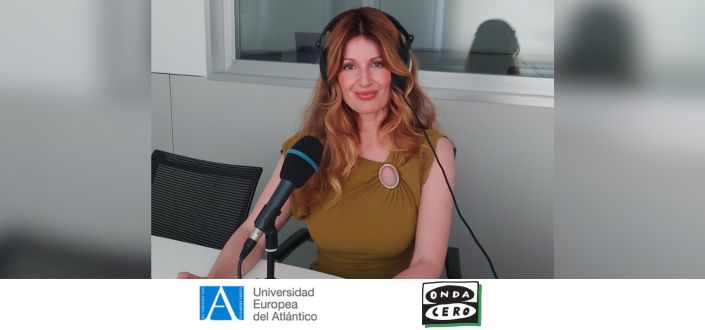Silvia Aparicio, Vice-Rector for Academic Planning and Teaching Staff at the Universidad Europea del Atlántico (European University of the Atlantic, UNEATLANTICO) , appeared on the Onda Cero radio programme to talk about the degree in Administración y Dirección de Empresas (Business Administration and Management, ADE) offered by the academic institution.
During the interview, Aparicio emphasised that entrepreneurial spirit is one of the main hallmarks of the curriculum and that students are provided with specific tools to develop their own projects. In this regard, she mentioned the subject ‘Business Economics and Entrepreneurship’, which is included in all degrees, and the Research and Development Foundation (Fidban), a network of business angels that connects entrepreneurial ideas with investors in Cantabria and various Latin American countries.
The vice-chancellor also explained that the UNEATLANTICO degree in Business Administration and Management was designed with an innovative vision from its creation in 2014, incorporating specialisations in international relations, international business and digital marketing. These areas allow students to acquire skills adapted to the current demands of the global labour market.
Aparicio emphasised the importance of university education being connected to the political, economic, social and technological environment. ‘For me, the key word is connection,’ she said, highlighting the university’s active collaboration with entities such as the CEOE, the Chamber of Commerce, APD, ANDBANK, the Government of Cantabria, Santander City Council, SODERCAN, Asociación Plaza Porticada, Fundación Chile-España and Centro Botín.
Finally, he recalled that much of learning also takes place outside the classroom, in direct contact with the professional world. He stressed that this approach not only strengthens students’ employability, but also promotes the transfer of knowledge between the university and the business world. ‘It is outside the classroom where students really apply what they have learned, generate real opportunities and turn the knowledge produced in the classroom into value,’ he concluded.


